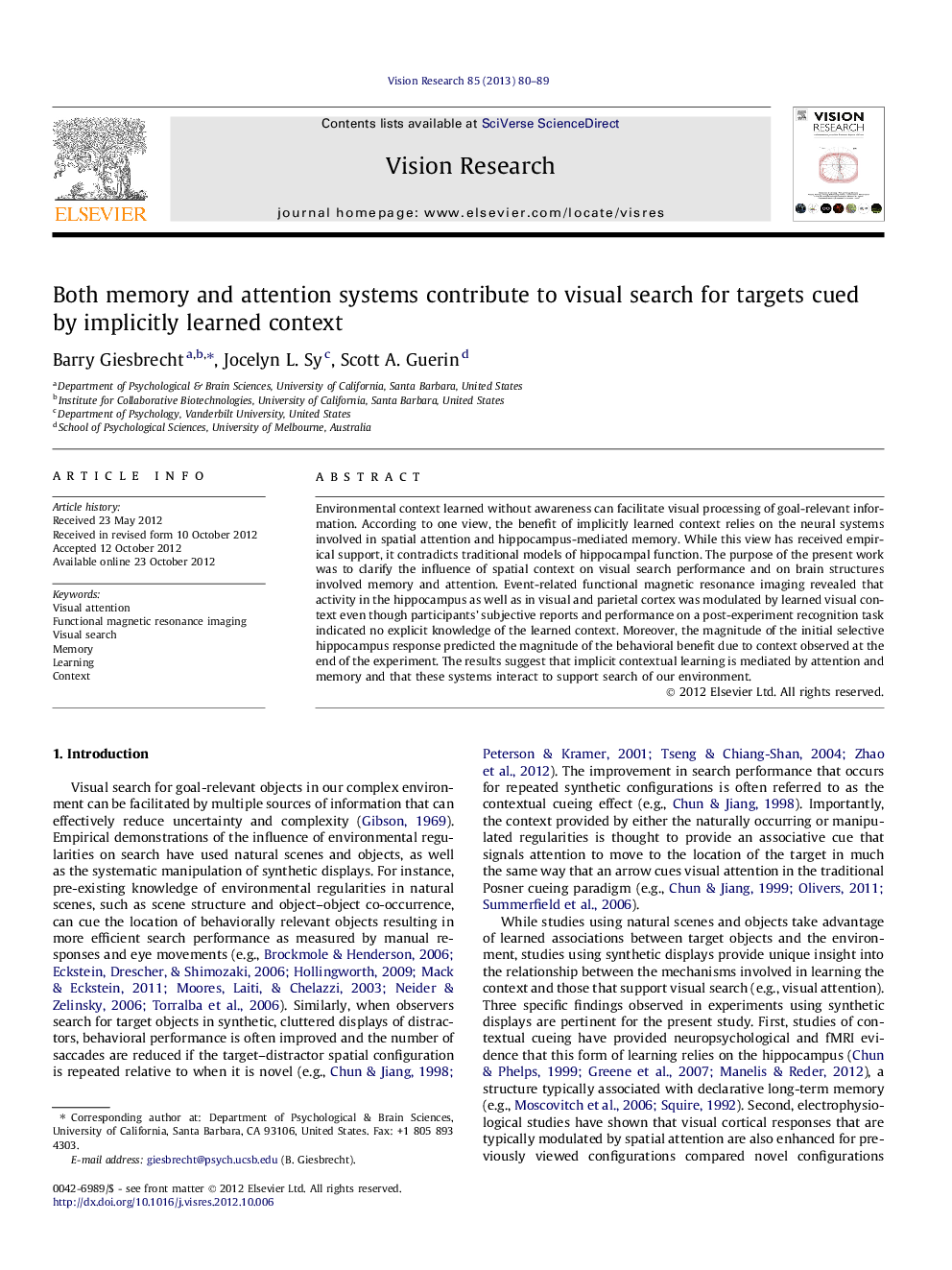| Article ID | Journal | Published Year | Pages | File Type |
|---|---|---|---|---|
| 4033789 | Vision Research | 2013 | 10 Pages |
Environmental context learned without awareness can facilitate visual processing of goal-relevant information. According to one view, the benefit of implicitly learned context relies on the neural systems involved in spatial attention and hippocampus-mediated memory. While this view has received empirical support, it contradicts traditional models of hippocampal function. The purpose of the present work was to clarify the influence of spatial context on visual search performance and on brain structures involved memory and attention. Event-related functional magnetic resonance imaging revealed that activity in the hippocampus as well as in visual and parietal cortex was modulated by learned visual context even though participants’ subjective reports and performance on a post-experiment recognition task indicated no explicit knowledge of the learned context. Moreover, the magnitude of the initial selective hippocampus response predicted the magnitude of the behavioral benefit due to context observed at the end of the experiment. The results suggest that implicit contextual learning is mediated by attention and memory and that these systems interact to support search of our environment.
• The hippocampus exhibited differential fMRI responses to spatial contexts during visual search. • Hippocampus activity correlated with visual search performance, not recognition. • Parietal cortex activity was modulated by the interaction between context and learning. • Activity in retinotopically organized visual cortex was modulated by context.
